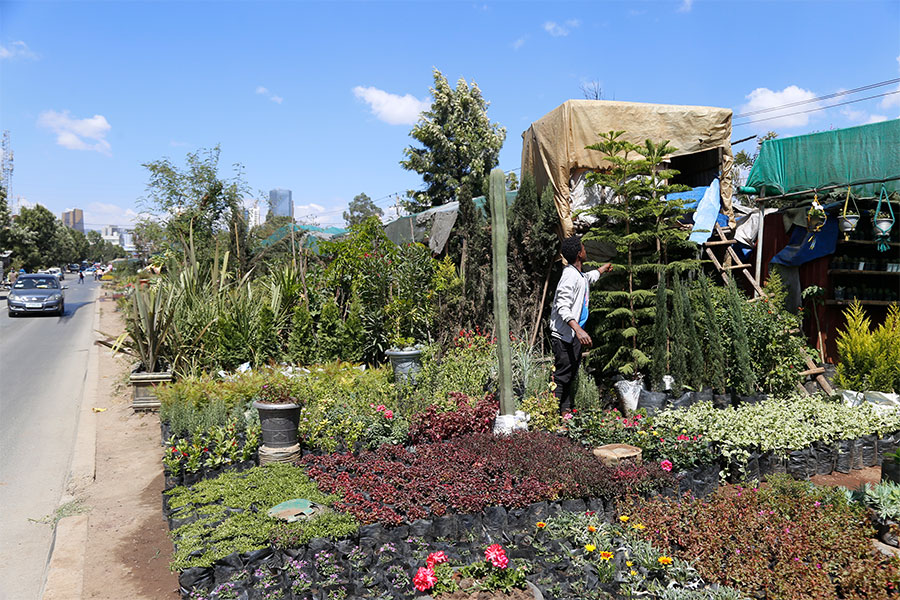
Aug 27 , 2022.
Review history; a developed capital market in Ethiopia in this age and era would have seemed settled. It was not.
A courtship with the money market dated as far back as over a century ago, when part of the financing for the Ethio-Djibouti Railway was mobilised, selling securities in Europe. The first bank, the Bank of Abyssinia, was established after the Imperial government raised equity in Europe.
And then there was the Addis Abeba Share Dealing Group in the 1960s, where 11 companies were listed. It was a pioneering private sector initiative yet to be replicated in Ethiopia’s paper-thin history of capital markets. The Group was more like an over-the-counter market than a stock exchange. It was not a platform where companies could list but a trading business that facilitated share and bond auctions.
It was not the only game in town, though. The Addis Abeba Bank and the Commercial Bank of Ethiopia (CBE) provided over-the-counter services to buyers. The traded shares had so much more variety than just commercial banks. It included Bottling Company of Ethiopia and Ethiopia Abattoirs.
All these were shut down in 1974 after rational economic theories were thrown out the window in the name of collectivism. The post-1991 order brought a brand of developmentalism that opened up the economy. But to a point. The idea of stock exchanges and capital markets was too close to full-blown capitalism for the leaders who had their roots in the leftist movements.
A few brave souls tried to bring back the share dealing Group from the dead. The attempt to form the Ethiopia Share Dealing Group was bouched. It did not go anywhere. The Ethiopian Commodities Exchange (ECX) was the only other notable development established to reduce transaction risks and ensure price transparency. Mandated by the state, it is restricted to agriculture sector players and a few wealthy individuals that can afford to buy membership seats.
Hopefully, this time around, the charm will come.
There is a renewed enthusiasm for establishing capital markets, which would modernise and financialise the economy. It makes raising capital for businesses and start-ups easier, provides alternative sources of finance and distributes risk through innovative financial products. It should be recognized as a vital step toward creating a robust private sector and competitive companies - facilitating the flow of capital from parties with surplus to those with a dearth.
Parliament has legislated the legal frameworks for governing capital markets. A federal agency mandated to regulate stock exchanges and bond markets is under establishment. The law is comprehensive and opens up the financial sector for trading, not just shares and bonds but also derivatives and debt securities. It also allows foreign investors to participate in financial assets’ trading, “whether that investor meets the minimum requirements for foreign investors stipulated under the country’s investment law.”
The face of it will be the Ethiopian Securities Exchange, which will be established as a share company. Other securities exchanges and over-the-counter markets could be set up, provided they fulfil the criteria. The would-be Ethiopian Capital Market Authority will have yet to set the minimum capital required.
Other reforms facilitating the development of financial markets have also passed unnoticed, like the open market operations and standing facilities directive by the National Bank of Ethiopia (NBE). It facilitates money market trading between the central bank and financial institutions with instruments such as repurchase agreements (repo) and central bank certificates.
But not so fast!
It is essential to ask why many African countries have established capital markets yet are barely relevant to the main economy. Take Rwanda. It has had a stock exchange for over a decade, with only about 10 companies participating. Kenya, Zimbabwe and Cameroon have gone for half a decade without initial public offerings (IPO). Such drought occurred during one of the greatest stock markets runs on record, when money was cheap, interest rates were low, and venture capital firms threw cash around like it was confetti.
The lesson is that developing the legal framework and the physical infrastructure for capital markets alone may not be sufficient. Not much can change. Neither will a federal agency regulating them nor a legal framework allowing them to exist will determine success on their own. There needs to be a permissive and enabling environment that should go along with it.
Financial Sector Deepening (FSD) Africa, a UK development agency, identifies three stages of capital markets on the continent: frontier, emerging, maturing and regional leaders. With its well-financialised economy, South Africa is considered a regional leader. Kenya, Nigeria and Ghana have emerging capital markets. Ethiopia is a frontier country, lacking a capital market. No developed money market (such as a secondary T-bill market) exists either.
The major obstacles to efficient capital markets are a lack of projects and issuers with high corporate and reporting standards. The absence of smooth market data flow, robust financial intermediaries and a diversified investor base undermine a functioning capital market meaningful to the broader economy. Put simply: capital markets require a conducive ecosystem to succeed.
It should start at the National Bank of Ethiopia (NBE), notorious for its leaders’ aversion to transparency. They hardly publish central bank minutes or even provide up-to-date macroeconomic data. Capital markets cannot thrive in a restricted market information flow. For instance, it would be sheer speculation to invest in infrastructure bonds without having access to data on factors that make financing construction possible, such as foreign currency reserves.
There is also a need for professional services and financial sector development to help capital markets grow. For companies to list or bonds of projects to be issued, reports on the financial health and performance need to be available and reported quarterly. This would not happen when accounting and auditing services are nascent, mainly because the authorities appear hesitant to hold executives of major firms controlling the economy’s commanding heights.
Just as crucially, a financial market cannot mature without well-capitalised and sophisticated intermediaries, such as market makers, investment banks and brokers. It is welcome that the capital markets establishment proclamation allows access to non-nationals. But, this will not mean much as long as the financial sector is sheltered from the global capital and capital accounts remain closed.
For capital markets, the past half a century has been lost decades. It should be no more.
PUBLISHED ON
Aug 27,2022 [ VOL
23 , NO
1165]

Fortune News | Jun 26,2021

Viewpoints | Jun 10,2023

Verbatim | Jul 07,2024

Fortune News | Mar 09,2024

Featured | Jan 03,2021

News Analysis | Sep 10,2021

Fortune News | May 21,2022

Commentaries | Feb 27,2021

Fortune News | Jan 28,2023

Fortune News | Jun 25,2022

My Opinion | 131658 Views | Aug 14,2021

My Opinion | 128022 Views | Aug 21,2021

My Opinion | 125985 Views | Sep 10,2021

My Opinion | 123609 Views | Aug 07,2021

Dec 22 , 2024 . By TIZITA SHEWAFERAW
Charged with transforming colossal state-owned enterprises into modern and competitiv...

Aug 18 , 2024 . By AKSAH ITALO
Although predictable Yonas Zerihun's job in the ride-hailing service is not immune to...

Jul 28 , 2024 . By TIZITA SHEWAFERAW
Unhabitual, perhaps too many, Samuel Gebreyohannes, 38, used to occasionally enjoy a couple of beers at breakfast. However, he recently swit...

Jul 13 , 2024 . By AKSAH ITALO
Investors who rely on tractors, trucks, and field vehicles for commuting, transporting commodities, and f...

Jun 29 , 2025
Addis Abeba's first rains have coincided with a sweeping rise in private school tuition, prompting the city's education...

Jun 29 , 2025 . By BEZAWIT HULUAGER
Central Bank Governor Mamo Mihretu claimed a bold reconfiguration of monetary policy...

Jun 29 , 2025 . By BEZAWIT HULUAGER
The federal government is betting on a sweeping overhaul of the driver licensing regi...

Jun 29 , 2025 . By NAHOM AYELE
Gadaa Bank has listed 1.2 million shares on the Ethiopian Securities Exchange (ESX),...